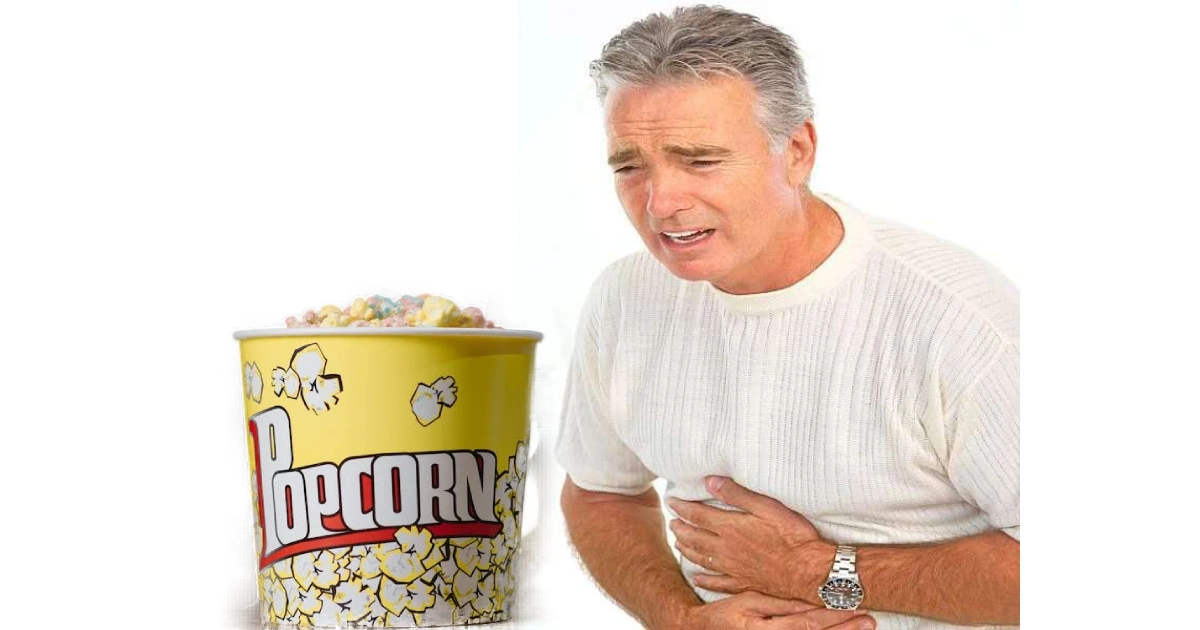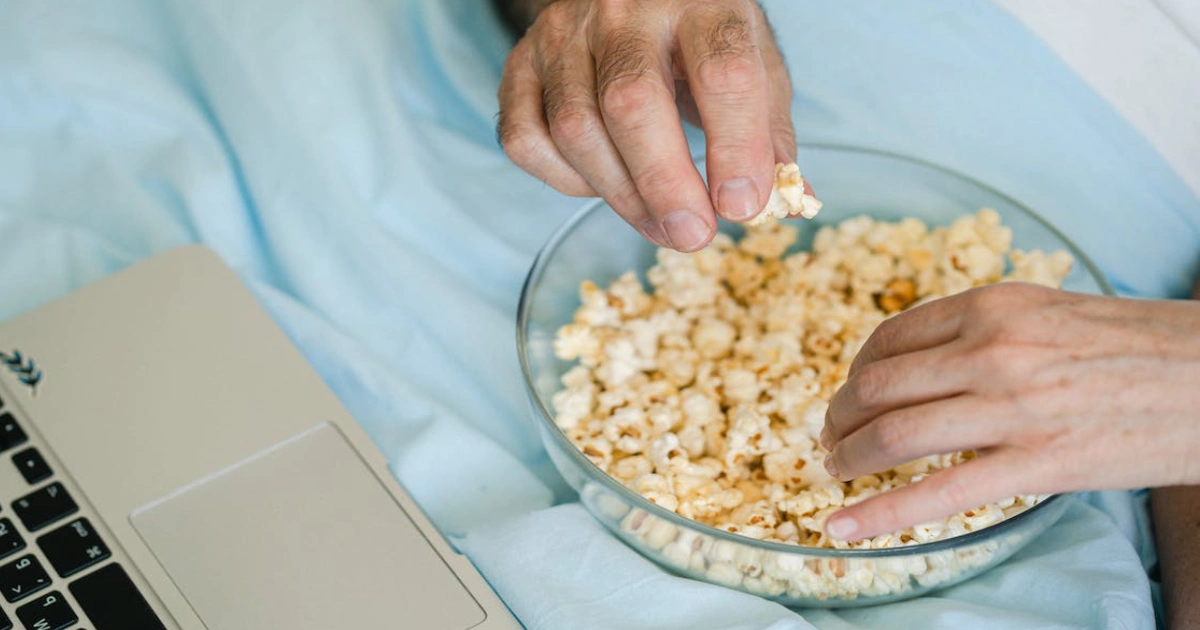Do you love the smell and taste of freshly-popped popcorn? Well, that sweet, salty snack may be a favourite for many Americans, but could it pose serious health risks? People often know about food poisoning risks associated with meats, eggs, or dairy products. However, only some would ask if popcorn can cause foodborne illnesses. In this blog, we discuss the potential of getting sick from contaminated popcorn – what are the chances that you will get food poisoning from it, and how to prevent such an incident. Read on to find out more to enjoy your favourite snack with peace of mind.
What Is Food Poisoning And What Are The Symptoms Of It?
Consuming contaminated food or water might result in an illness known as food poisoning. Symptoms usually manifest within a few hours of eating, including nausea, vomiting, diarrhoea, stomach cramps, and a fever. Depending on the bacterial strain, the severity of the symptoms may vary, but in rare instances, they might cause dehydration or even require hospitalization. Commonly identified bacterial strains include Salmonella, E. coli, and listeria, found in undercooked meats, raw produce, and unpasteurized dairy products. If you experience any of the symptoms mentioned above, it is crucial to seek medical attention immediately to prevent any further complications. Food poisoning can significantly avoid by being aware of food safety issues and following reasonable hygiene procedures.
Can Popcorn Be a Source Of Food Poisoning?
Popcorn is a good snack many enjoy, but can it cause food poisoning? The answer is yes, it is possible. While generally considered safe, popcorn can carry harmful bacteria like Salmonella, which can cause illness. This is most commonly caused by improper handling and storage of popcorn kernels or popped corn. It is important to ensure that popcorn is stored in a dry and cool place and that the equipment used for popping popcorn is thoroughly clean to prevent contamination. By taking proper precautions, popcorn can continue to be a delicious and safe snack.
Does Popcorn Cause Heartburn?

Popcorn is an all-time favourite snack for many, especially for movie buffs. But what happens if you experience a burning sensation in your chest after indulging in this beloved snack? It may surprise you to learn that popcorn can cause heartburn. Buttered popcorn, in particular, can contribute to acid reflux due to the high-fat content of the butter. When you eat popcorn, the stomach acid backs up into the oesophagus, causing an unpleasant feeling of heartburn. This doesn’t mean you need to give up on popcorn altogether, but it’s best to stick to plain, air-popped popcorn and avoid adding butter or other toppings that can trigger heartburn symptoms.
Factors Which Increase The Risk Of Food Poisoning From Popcorn
Popcorn is a beloved snack that can be enjoyed in various settings, from movie theatres to cosy nights at home. However, certain factors can potentially increase the risk of food poisoning. Some of these factors include improper storage, unsanitary preparation and handling, and the addition of contaminated toppings. In order to minimize the risk of food poisoning from popcorn, it is important to store it in a dry, airtight container, always wash your hands before preparing it, and be cautious about where your toppings source from. Taking these precautions allows you to indulge in your favourite snack without worry safely.
How To Safely Prepare And Store Popcorn To Prevent Contamination?
Popcorn is a delicious, easy-to-make snack that you can enjoy at any time of the day. However, ensuring it’s prepared safely and stored correctly is important to avoid contamination. To start, rinse your popcorn kernels under cold water to remove dirt or debris. When popping the kernels, use a clean pot or microwave-safe container and avoid overheating, as this can lead to burnt popcorn and a potential fire hazard. After popping, put the popcorn in a clean, dry container and keep it away from moisture or other potential contaminants in a cold, dry location. These simple steps can help you enjoy your popcorn with peace of mind, knowing it prepares and stored safely.
Health Benefits Of Consuming Popcorn As Part Of a Balanced Diet
Popcorn, the beloved snack we associate with in movie theatres and on lazy afternoons, is more than a tasty treat. Did you know that consuming popcorn as part of a balanced diet can provide various health benefits? It is a healthy snack option for people seeking to manage their weight because it is low in calories and fibre. Additionally, popcorn contains antioxidants and polyphenols that help protect the body from certain diseases. Popcorn can be a healthy and delicious addition to your diet if it consumes without excessive amounts of butter or salt. So, the next time you reach for a snack, consider grabbing a bowl of popcorn and enjoying its many benefits.
When To Seek Medical Attention If You Suspect You Have Food Poisoning From Eating Popcorn
Food poisoning can cause by different types of bacteria, viruses, and even parasites. It is common, and symptoms can range from mild to severe. If you think you have food poisoning from popcorn, you must watch out for symptoms such as nausea, vomiting, diarrhoea, stomach cramps, and fever. These symptoms usually show within a few hours to a few days after consuming contaminated food. If your symptoms are severe and persist for more than 48 hours, it is critical to seek medical attention. This is especially true if you have a weakened immune system, are pregnant, or have other underlying health conditions. Medical attention can help treat the symptoms, prevent dehydration, and identify the cause of food poisoning.
Can I Eat Popcorn With Diarrhoea?
Diarrhoea is a common condition characterized by loose, watery stool and often accompanied by cramping, bloating, and nausea. When dealing with diarrhoea, it’s important to be mindful of the foods you consume to avoid worsening the situation. While popcorn may not be the first food that comes to mind when treating diarrhoea, it can be a good choice. The fibre in popcorn can help to bulk up your stool and alleviate diarrhoea symptoms. However, avoid adding butter or salt to your popcorn, as these can irritate your digestive system and make matters worse. If you’re dealing with diarrhoea, popcorn without any additives can be a good snack option to help get your digestive system back on track.
Is Popcorn Good For Digestion?

Popcorn is a popular snack among many people across the globe. However, there has been debate on whether popcorn is good for digestion. Some argue that popcorn is bad for your colon, while others believe it’s excellent for digestive health. In truth, popcorn is good for digestion because it consumes in moderate quantities. Popcorn is a whole-grain food that’s rich in fibre, which is essential for digestive health. It helps to regulate bowel movements and prevent constipation. However, individuals with conditions affecting their digestive system may need to limit their popcorn intake. As for how long it takes for popcorn to digest, it depends on several factors, such as the amount consumed and how thoroughly it was chewed. Generally, popcorn takes 24 to 72 hours to pass through the digestive system. So, if you’re a popcorn lover, indulge, but in moderation.
Is Overeating Popcorn Bad For You?
While popcorn is often thought of as a healthier snack option, eating excessive amounts can lead to adverse health consequences. The disadvantages of eating popcorn are largely due to its high sodium levels and unhealthy additives, such as artificial butter flavouring. Eating too much popcorn can lead to bloating, dehydration, and even high blood pressure. In addition, microwave popcorn has been linked to lung damage due to inhaling fumes from the chemicals used to create artificial flavouring. While enjoying a small serving of popcorn as a snack can be a healthy choice, consuming it in excess can lead to unwanted side effects.
Child Vomiting After Eating Popcorn
As a parent, seeing your toddler throw up after eating something they enjoyed can be concerning. In the case of popcorn, it’s not uncommon for little ones to have difficulty digesting the hulls of the kernels. These hulls often get stuck in the small intestine, leading to discomfort and vomiting. It’s important to keep an eye on your child, ensuring they stay hydrated and monitoring their symptoms. In severe cases, medical attention may be necessary. As with any feeding issue, it’s always best to consult your child’s paediatrician if you have concerns.
Choking On Popcorn
Choking on popcorn can be a dangerous and scary experience for anyone, but it’s especially concerning for young children. Parents may wonder if giving their young ones popcorn as a snack is safe. At the same time, older children and adults can typically handle popcorn without issue; children under four risk choking more due to their smaller airways and immature swallowing skills. It recommends avoiding giving popcorn to children under four until their doctor has told them it is safe. In the meantime, parents can offer age-appropriate snacks that are easier for their little ones to eat and less likely to cause choking hazards.
Conclusion
In summary, food poisoning is a severe and potentially life-threatening illness. While popcorn can be a tasty and relatively healthy snack, certain factors increase the risk of food poisoning from this snack food if it does not prepare and stored correctly. However, when consumed in moderation as part of a healthy diet and prepared and stored according to the correct instructions, popcorn may provide a number of health benefits. If you experience the common symptoms of food poisoning after consuming popcorn, seeking medical attention right away is important to protect your overall well-being. With this informational overview in mind, you can safely enjoy saving popcorn, knowing exactly how to keep it safe for consumption!
